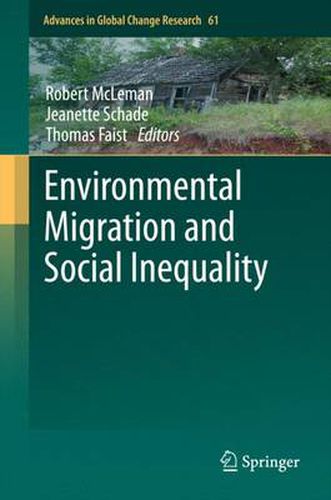Readings Newsletter
Become a Readings Member to make your shopping experience even easier.
Sign in or sign up for free!
You’re not far away from qualifying for FREE standard shipping within Australia
You’ve qualified for FREE standard shipping within Australia
The cart is loading…






This book presents contributions from leading international scholars on how environmental migration is both a cause and an outcome of social and economic inequality. It describes recent theoretical, methodological, empirical, and legal developments in the dynamic field of environmental migration research, and includes original research on environmental migration in Bangladesh, Burkina Faso, China, Ghana, Haiti, Mexico, and Turkey. The authors consider the implications of sea level rise for small island states and discuss translocality, gender relations, social remittances, and other concepts important for understanding how vulnerability to environmental change leads to mobility, migration, and the creation of immobile, trapped populations. Reflecting leading-edge developments, this book appeals to advanced undergraduate and graduate students, researchers, and policymakers.
$9.00 standard shipping within Australia
FREE standard shipping within Australia for orders over $100.00
Express & International shipping calculated at checkout
This book presents contributions from leading international scholars on how environmental migration is both a cause and an outcome of social and economic inequality. It describes recent theoretical, methodological, empirical, and legal developments in the dynamic field of environmental migration research, and includes original research on environmental migration in Bangladesh, Burkina Faso, China, Ghana, Haiti, Mexico, and Turkey. The authors consider the implications of sea level rise for small island states and discuss translocality, gender relations, social remittances, and other concepts important for understanding how vulnerability to environmental change leads to mobility, migration, and the creation of immobile, trapped populations. Reflecting leading-edge developments, this book appeals to advanced undergraduate and graduate students, researchers, and policymakers.